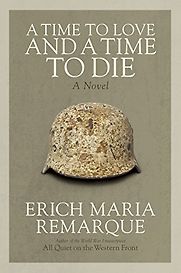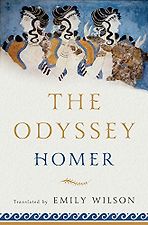Recommendations from our site
“This book is a pacifist book, a great anti-war book. It was very popular when it came out. Erich Maria Remarque wrote the book at the end of the 1920s. When Hitler came to power, the book was banned, and was one of the books that was burned in that infamous book-burning episode in Berlin. Later on, Remarque was forced to leave Germany. He went to America and remained in the United States. It’s a story of a young man’s tragic disenchantment with war.” Read more...
The Best Historical Fiction Set in France
David Lawday, Biographer
“My copy, rather histrionically, advertises itself as ‘the greatest war novel of all time.’ I remember thinking, when I picked it up in a second-hand shop: that’s big promise. But I think it might be right. It’s very distressing and actually quite life-changing. The book gave me a permanent jolt in perspective.” Read more...
The Best First World War Novels
Alice Winn, Novelist
“All Quiet on the Western Front (1929), by Erich Maria Remarque. This is a landmark novel about war in general, and the First World War in particular. Remarque was a German writer who subsequently was exiled from Nazi Germany to the United States. He had quite an extraordinary life. He fought in the First World War, and the book, which is written in the first person, is largely autobiographical. It’s a remarkable novel which I chose for mostly two reasons. The first one is that, better than any novel or indeed first-hand account I’ve read about war, it shows what’s animal and animalistic about war. The second reason I chose it is because it also claims that, even in the middle of such horrors as were experienced in the trenches, there was always a spark of hope, a spark of life, without which you can’t go on..” Read more...
Cécile Fabre, Philosopher
“It’s evocative because it’s the First World War seen through German eyes…All Quiet on the Western Front is the story of a German private soldier on the front line and it’s a very moving account of the deprivation and the hardship he goes through, showing us that innocent people were thrown into uniform and told to serve whether they liked it or not.” Read more...
Jeffrey Archer, Novelist
Q: In Rites of Spring: The Great War and the Birth of the Modern Age (1989) by Modris Eksteins. there’s a chapter about All Quiet on the Western Front, and how Adolf Hitler spent a lot more time in the trenches than the author of that book (Eric Maria Remarque). I found it very readable, but I wasn’t sure how it all held together, necessarily.
A: I’m not sure it does terribly. Inevitably, he’s cherry picking from a huge number of sources and then trying to drag them together into this broader thesis about the modern world. It doesn’t work, but I think that’s the nature of the project. If you go and look at 100 different artists, you’ll get 100 different responses to the war. They can’t be generalized about in that way. But it’s a brave attempt.
What has changed since World War I is that the writing on war by those who have experienced it is much more openly concerned with how soldiers reintegrate both during war and after it is over. How do they reintegrate after war? That was the theme of All Quiet on the Western Front too, in some ways: Erich Maria Remarque wanted to find the way back, to paraphrase the title of the book he wrote after All Quiet. The enemy is also there in World War I literature, but the civilians are much more absent, not obvious as they are in the Woodruff book.








Commentary